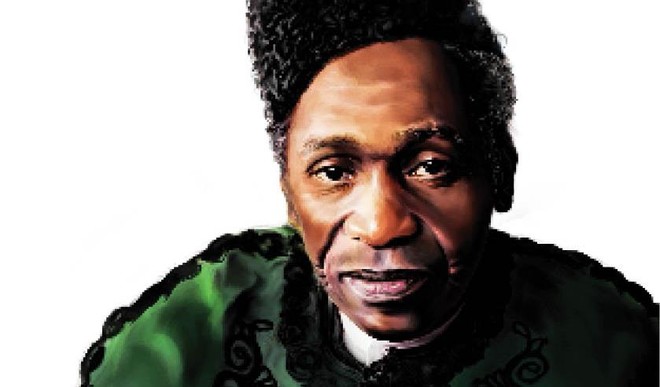Manners and mannerism: On Yusuf Maitama Sule
On July 4, 2017, at 4pm, Nigeria buried Alhaji Yusuf Maitama Sule, Dan Masanin Kano, one of Nigeria’s best sons, and the last of its orators. He died at an Egyptian hospital after heart complications necessitated his transfer from Abduallahi Wase hospital in Kano. Born in 1929, Maitama Sule died at the age of […]


On July 4, 2017, at 4pm, Nigeria buried Alhaji Yusuf Maitama Sule, Dan Masanin Kano, one of Nigeria’s best sons, and the last of its orators. He died at an Egyptian hospital after heart complications necessitated his transfer from Abduallahi Wase hospital in Kano. Born in 1929, Maitama Sule died at the age of 88, living behind ten children and many grandchildren. When the corpse arrived Kano, it was received by many Nigerian leaders, including Senate President Bukola Saraki.
It’s not often that you see the coffin of a dead Nigerian – even of a statesman – on the shoulders of governors and senators, as was the case during Dan Masani’s funeral, underscoring the fact that he was well loved by many. His grandson, Alhaji Hassan Mahmoud said he was “everything to us, a father, a guardian, a mentor and above all, a pillar of the family.”
Except that he was those things to many other Nigerians. His eldest son, Mukhtar Maitama Sule, agrees: “My father was a great man and a father to all and sundry. I cannot count the number of people that have grown up in this house under his care. Some are still alive and others have died. His wealth was for all.”
After his death, my friend told me that when his wife was younger, the first time she met Maitama Sule, she told her mother that “how I wish he were my father.”
He easily connected with the youth. And I think he enjoyed their company. In turn, the youth wanted to be with him, to hear his stories.
Maitama Sule was so good at many things, it was as if he was taken to the shelf of dazzles and asked him to assemble his own personality. He was a teacher, a diplomat, a politician, a peace maker and – this is a gift Nigerians don’t forget to list – an orator. After all, he was the man who could say one thing in ten different ways. But that’s not all, he did it with so much cadence and poetic eloquence – leaving the listener dreading the end of his speech.
So Maitama spoke on – at a hundred and thousand events. In his condolence message to the people of Kano, President Muhammadu Buhari mentioned this. The president marveled at his stamina, which not even his failing sight could stymie. He didn’t withdraw. He kept on going, building, connecting and inspiring.
Born in Unguwar Yola in Kano city on October 1, 1929, Yusuf Maitama Sule did his elementary and middle school in Kano before moving in 1943 to Kaduna College, which became Barewa College. In 1946, he attended teachers training and thereafter, taught at Kano Middle School until 1953. He was later transferred to the Ministry of Information where – on account of his eloquence – he quickly became chief information officer.
The late Emir of Kano, Alhaji Muhammadu Sanusi I made him the first ever Dan Masanin Kano. Maitama was elected to the Federal Parliament in 1959 under the banner of NPC. He was later appointed the Minister of Mines and Power at the age of 29, which was another first, because he was the youngest minister at that time.
The 1966 military coup, necessitated his return to Kano and he joined the Kano Emirate Council. At the creation of Kano State in 1968, he was made the Commissioner of Local Government. General Murtala Muhammad appointed him the Federal Commissioner of Public Complaints Commission, another first. He resigned that appointment in 1978 and joined the National Party of Nigeria. During the presidential primaries of the party, three of them (Shehu Shagari, Adamu Ciroma and Dan Masani) qualified for the runoff. But the two of them stepped down for Shagari. Later, President Shehu Shagari appointed him Nigeria’s Permanent Representative to the United Nations in New York. There, he chaired the UN’s Committee Against Aparthied. Maitama Sule retired from politics in the 1980s and was honored by many organizations including universities which gave him honorary doctorates.
By the near guess of my estimate, no living statesman approximated Yusuf Maitama Sule’s combination of patriotic and cosmopolitan credentials, there was no copy, not even a bad one. And to borrow President Buhari’s words, “we shall not soon see the like of him.”
It’s therefore justice to ourselves if we elect to live like him, unite like him and to love our compatriots the way he did. And to adopt – to use his own words – his “manners and mannerism.”
